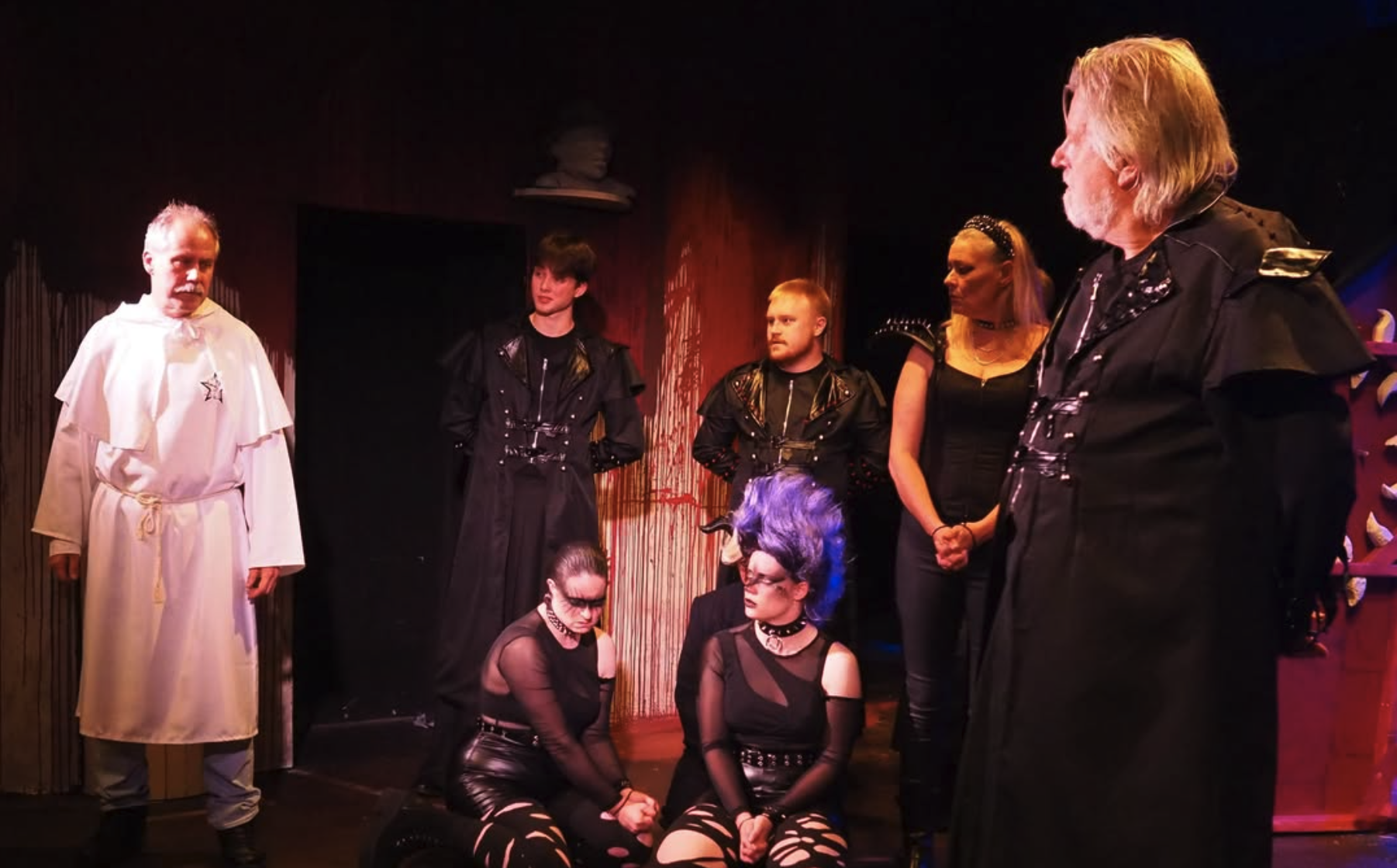A Halloween Reimagining of Shakespeare's brutal and bonkers gorefest
We attended Titan Andronicus on Halloween night at Progress Theatre in Reading, and the timing couldn’t have been more fitting. What unfolded was a confident, inventive reworking of Titus Andronicus that leaned into the play’s inherent brutality while reframing it through the lens of 1980s subculture. The result was a production that balanced unconventionality with intention, drawing on both Shakespearean tradition and community-theatre experimentation.
Entirely run by volunteers, Progress Theatre is a repertoire company that stands apart for its adventurous programming and strong community ethos. Rooted in values of inclusivity, creativity, and respect, the theatre aims “to create excellent theatre” while offering a welcoming space for both audiences and participants. This evening’s production, adapted and directed by Dan Clarke and Matt Tully, made full use of the intimate 100-seat auditorium - an embodiment of the theatre’s mission to produce bold, engaging work that reflects its collaborative spirit and commitment to accessible, high-quality productions.
The first thing that struck us was the visual design. Progress Theatre’s team committed fully to an 80s-punk aesthetic: leather trousers paired with denim, studded accessories, and bold hair - including a standout purple punk mohawk that became almost a character in its own right. This decision wasn’t merely decorative; it helped locate the production in a world where rebellion, excess, and theatricality coexist naturally with Shakespeare’s violent political landscape.

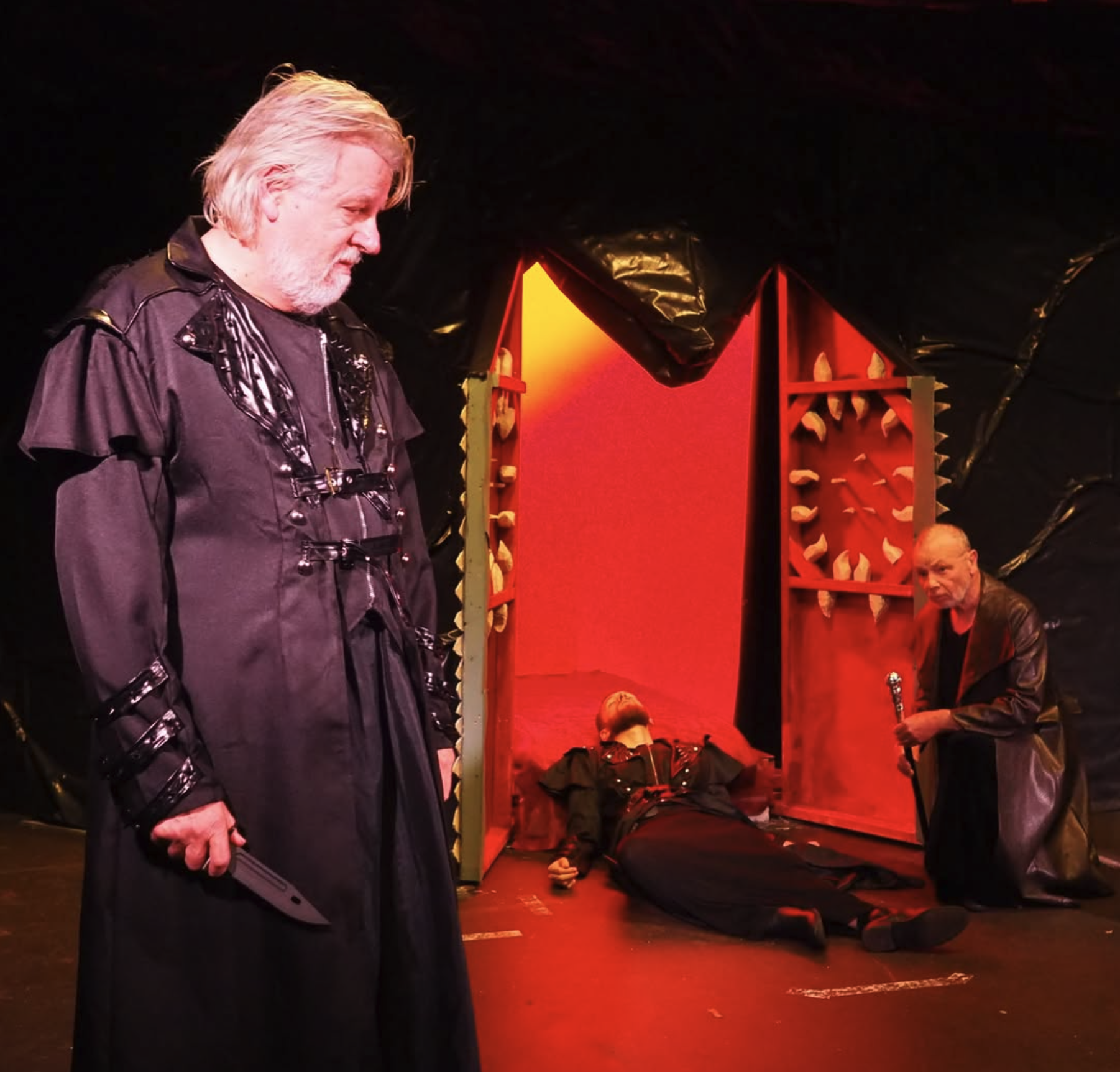
Image copyright: Richard Brown, Progress Theatre
The show’s approach to stage violence was equally creative. Titus Andronicus is a play built on escalating atrocity, and this production embraced that challenge with humour and imagination. Death scenes appeared in rapid succession, each uniquely staged: exaggerated melodramas, stylised collapses, and practical effects that played to the intimate scale of the venue. Rather than undercutting the seriousness of the plot, these moments highlighted the absurdity that often lies beneath Shakespeare’s darkest tragedies. The tone remained controlled, even in its most outlandish moments.
One moment in particular stood out for its audacity. In a scene played for shock, a strap-on prop was introduced as part of the action - an intentionally exaggerated choice that echoed the bawdiness found throughout Shakespeare’s work and fit seamlessly within the production’s punk sensibilities. The moment drew a loud reaction from the audience, not because it felt gratuitous, but because it was used with clear purpose: to underline the absurdity and brutality of the situation, to push the comedic boundaries of the scene, and to strengthen the production’s larger interplay between discomfort and humour. It was a risk, but a controlled one, and it landed.

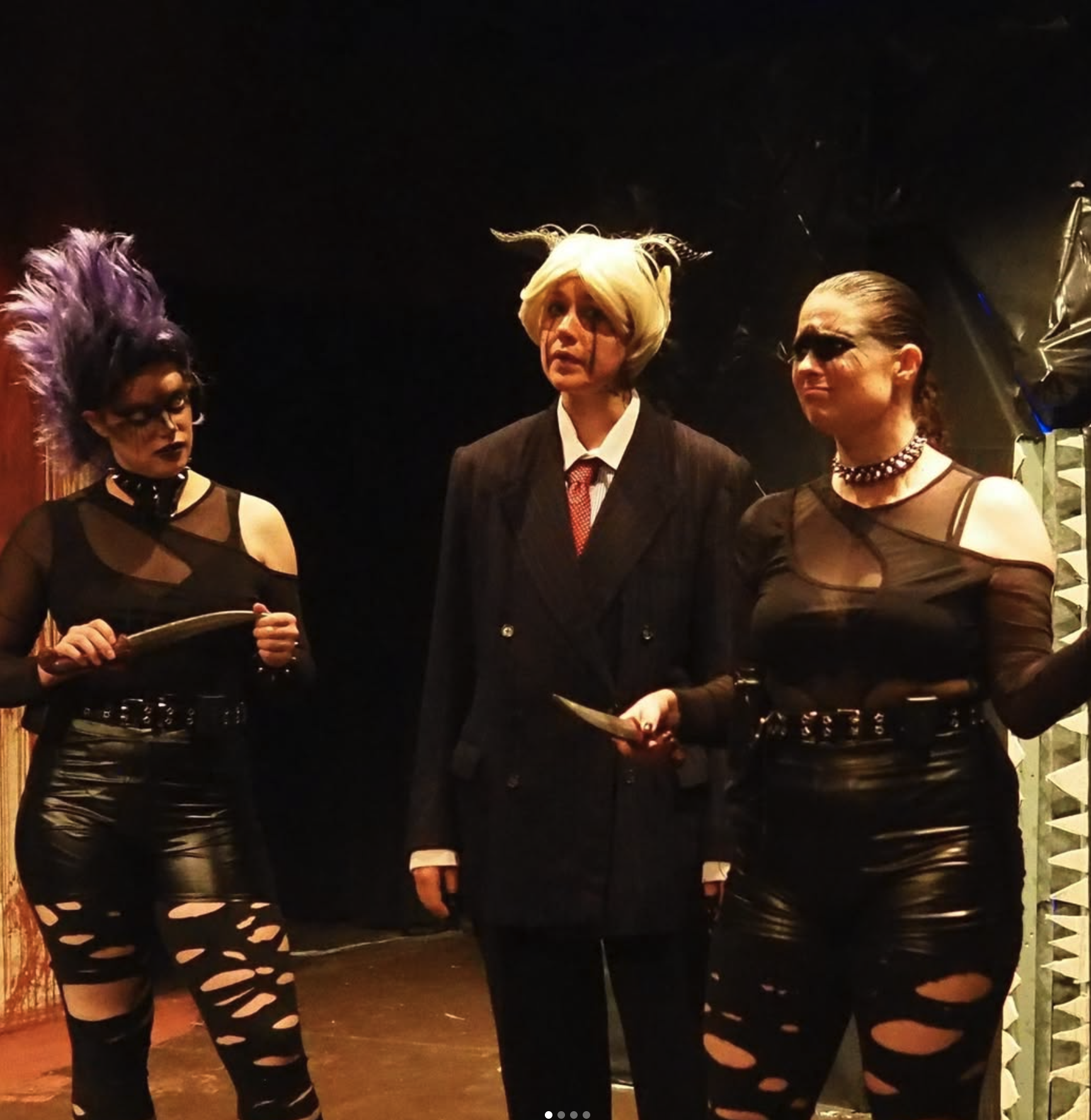
Image copyright: Richard Brown, Progress Theatre
Progress Theatre’s strength lies not only in artistic boldness but in the proximity, it creates between performers and audience. On Halloween night, that intimacy felt especially effective. The small space, seating approximately 100 keen spectators, amplified both the tension and the comedy, reminding us how powerful Shakespeare can be when presented without the distance or polish of larger commercial venues. Community theatre encourages risk, and this production took several - most of which paid off.
While the aesthetic and tone were heightened, the performance remained rooted in the text’s central themes: revenge, political collapse, family loyalty, and the fragility of power. The cast committed fully to the material, navigating the blend of satire and tragedy with commendable clarity. Even at its most chaotic, the production maintained a sense of narrative coherence, ensuring that the audience could follow the story through its stylistic shifts. Importantly, the production made the plot unusually easy to follow - no small achievement given Shakespeare’s dense language and fast-moving political turns. The clarity of staging and performance allowed even complex motivations and shifting allegiances to register cleanly, making the story accessible without diluting its depth.
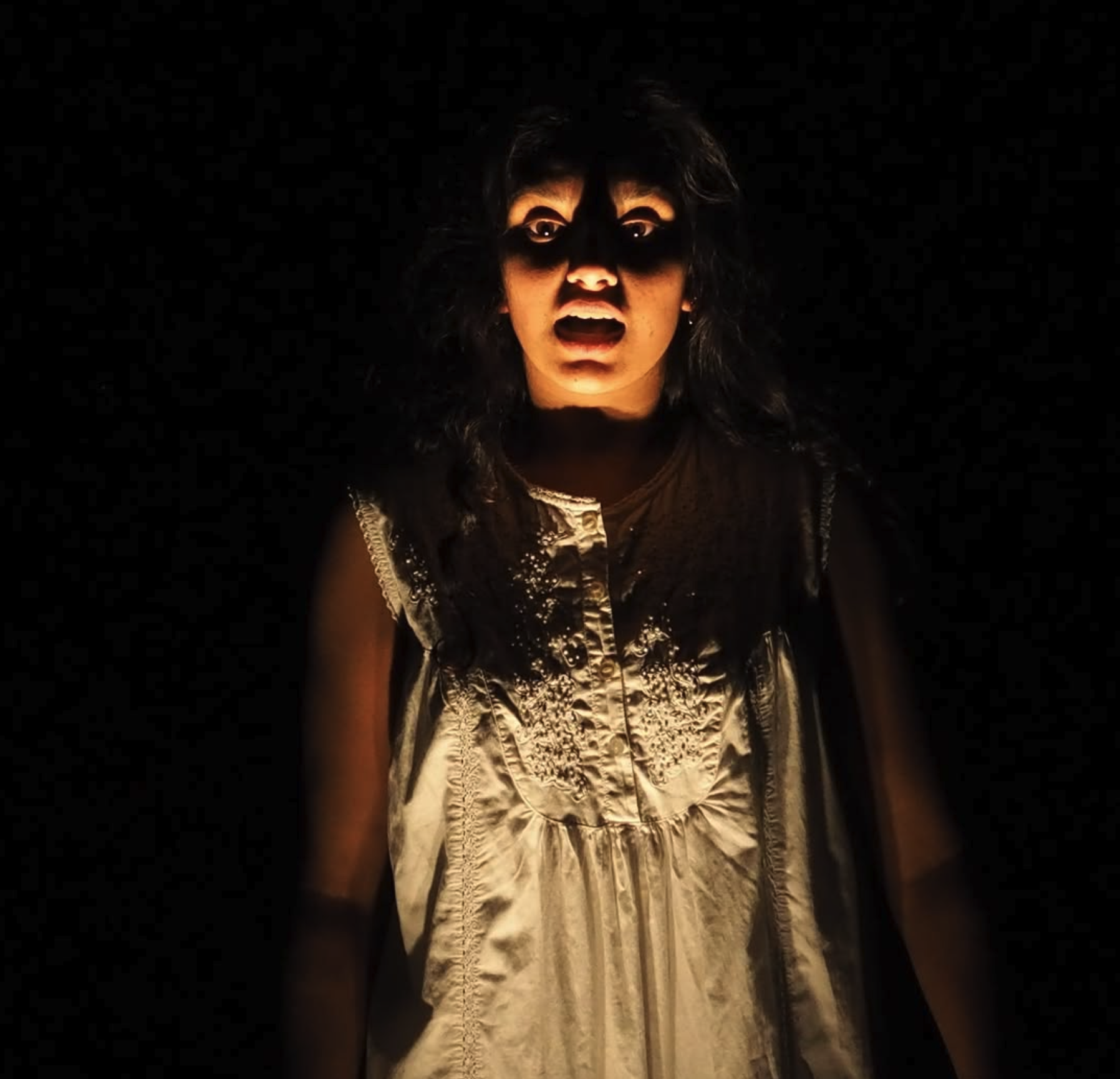
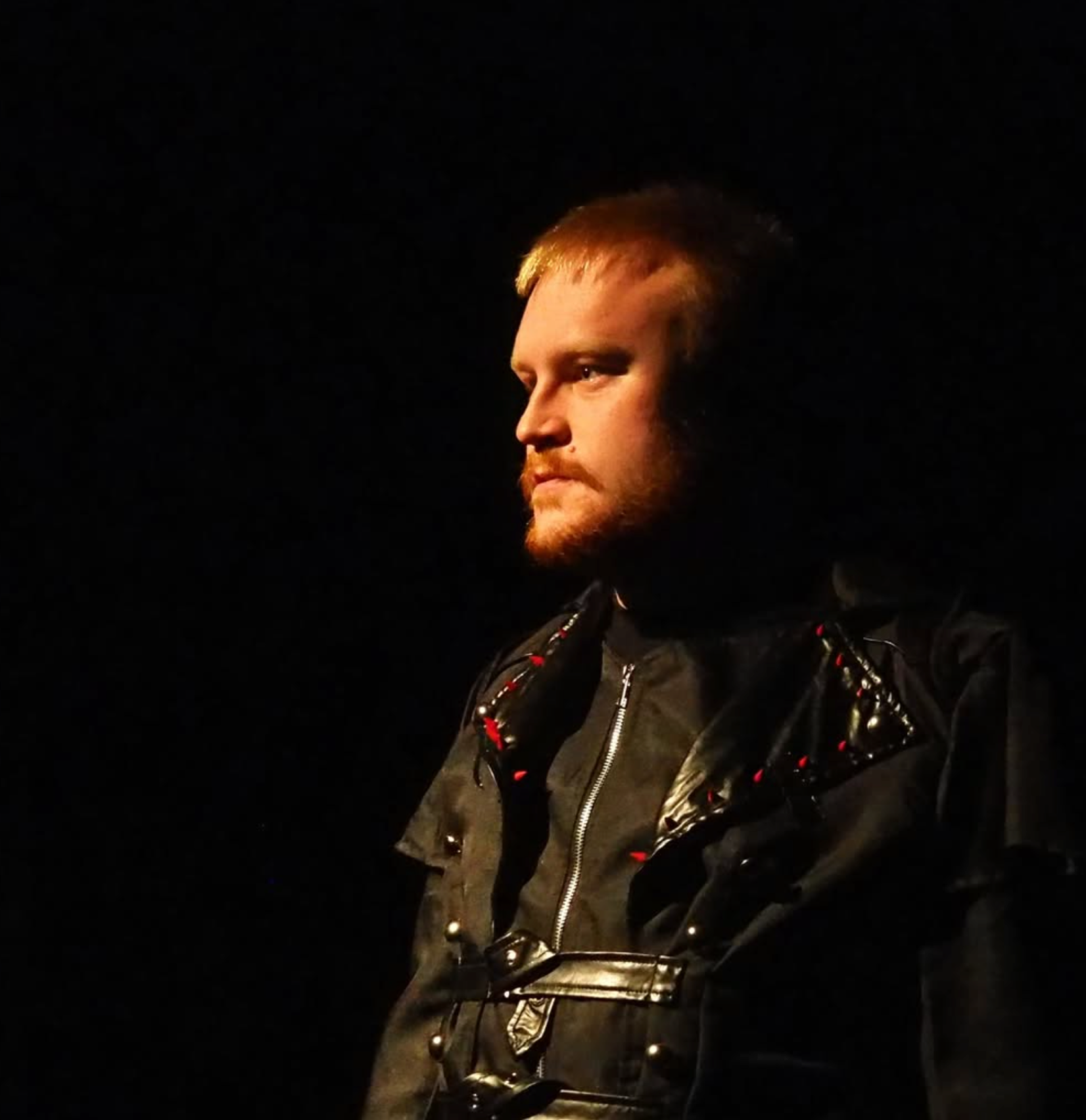
Image copyright: Richard Brown, Progress Theatre
Experiencing Titan Andronicus at Progress Theatre reaffirmed the value of local performance spaces. These venues give artists room to reinterpret classics in ways that reflect contemporary sensibilities rather than academic expectations. They also create cultural touchpoints for communities - places where audiences gather, not simply to watch, but to participate in the ongoing life of theatre.
On Halloween, we expected a dramatic evening. What we encountered was a thoughtful, inventive, and often surprising adaptation that reminds us why Shakespeare thrives in the hands of grassroots practitioners. Productions like this keep the work alive - not by preserving it exactly as written, but by engaging with it creatively, critically, and thoughtfully - exactly the kind of work that keeps community theatre vital.
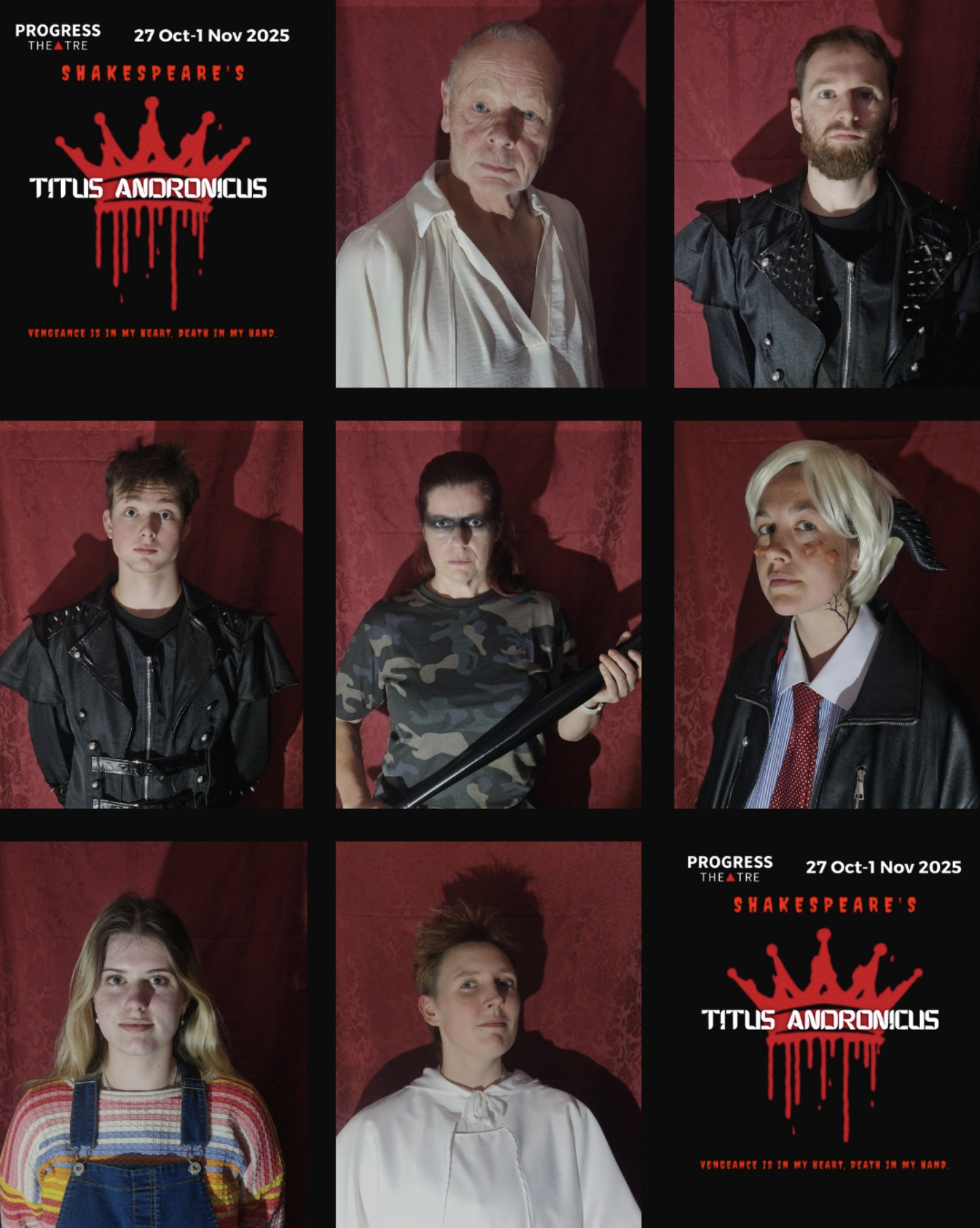
We're constantly on the look out for new artists, creatives and initiatives to feature in TheNeverZine - so if you are, or know someone who is going their own way and doing their own thing on their own terms and would be a good fit to feature please smash that button below and get in contact. By talking to each other, and sharing our journeys, ideas and insights on creativity, art, mental health and resilience we can all create, share and thrive together. Nice thought that.
PS - Don't forget to subscribe below for more content from TheNeverPress 👇

